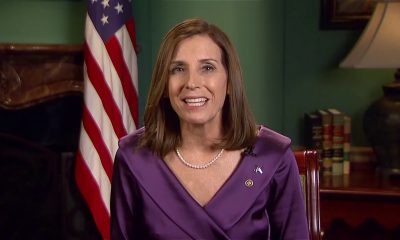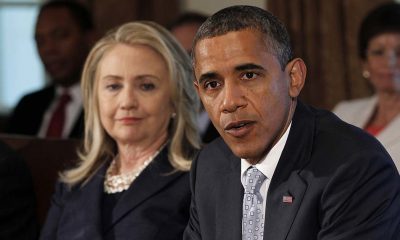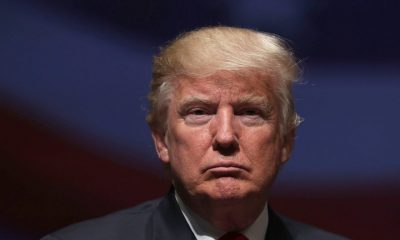World
Cheating software ‘not corporate decision’: Volkswagen

Washington: The CEO of Volkswagen Group of America apologised for the software that was installed in its diesel vehicles to deceive environmental regulators, but he said a handful of “individuals” were responsible for the trickery.
In a hearing before the US House Energy and Commerce Subcommittee on Oversight and Investigations, Michael Horn on Thursday said most of the affected vehicles would continue to emit excessive pollutants for at least a couple of more years.
The executive denied having any prior knowledge of the software, which detected when emissions testing was taking place and turned on emissions’ controls only when the vehicles were being operated in a test laboratory.
When those same vehicles were being driven under normal conditions, the controls were turned off and they spewed up to 40 times the allowable amount of nitrogen oxide, which contributes to the formation of smog and acid rain.
The deactivation of emissions controls during normal driving can improve a diesel-fuelled car’s performance, experts say.
Horn learned about the defeat devices on September 1 of this year, two days before VW admitted to the US Environmental Protection Agency that nearly 500,000 VW and Audi diesel vehicles sold in the US had the illegal software.
The vehicles in question were from the model years 2009 to 2015.
The EPA issued a notice of violation of the Clean Air Act to Volkswagen on September 18, when the scandal erupted.
Horn also cleared other senior officials of the German automaker of wrongdoing, saying the trickery was “not a corporate decision” and “a couple of software engineers… put this in for whatever reason”.
The VW Group of America chief said cars covered by the allegations could be fixed by 2017 because the solution requires the installation of new equipment.
Volkswagen Group CEO Martin Winterkorn stepped down on September 23 even though he also said he did nothing wrong.
VW said 11 million vehicles worldwide were equipped with the illegal software.
World
Lockdowns in China Force Urban Communities to Defy Censorship and Vent Frustration Online

Shanghai’s rich middle class is leading a wave of online dissent over the strict and prolonged lockdowns imposed in various parts of the country. Chinese internet censorship is struggling as patience is wearing thin in many urban centers, coming up with creative forms of online protests.
Social Media Posts Revealing Lockdown Tension in Shanghai
Drawn-out lockdowns are nothing new in China as authorities insist with the nation’s zero-Covid policy since the start of the pandemic. Currently over This time around, however, metropolitan areas like Shanghai are increasingly difficult to keep quiet, given that its more than 25 million residents have seen weeks of total isolation along with food shortages and many other service interruptions.
Dozens of towns and reportedly over 300 million Chinese citizens have been affected by lockdowns of different severity. As expected, urban netizens have been most outspoken over their difficulties by finding creative ways to get around state censorship and bans placed on topics, news comments and spontaneous campaigns.
Shanghai residents have been using mobile proxies and hijacking seemingly unrelated hashtags to talk about healthcare issues, delivery failures and the overall severity of their situation. The “positive energy” that the Chinese government wants to transmit during the recent prolonged series of lockdowns does not come naturally to those counting food supplies and online censors are working hard to filter words, trending topics and undesired social media sharing.
WeChat groups and message threads are under constant monitoring. Posts questioning the zero-Covid approach have been quickly deleted, including by leading Chinese health experts like Dr. Zhong Nanshan. Video footage is soon censored and protests and investigations are quickly made to disappear.
Where this has not worked, officials have exposed banners with warnings and outright threats like “watch your own mouth or face punishment”, while drones have been patrolling the city skies. Yet, if anything, this has led to further tensions and unspoken confrontation with Shanghai’s educated and affluent middle class.
Creative Online Solutions Harnessing Civic Energy
Announcements by Chinese social media that they would be publishing the IP addresses of users who “spread rumors” have not helped either. Tech industry research has shown that much of Asia’s tech-savvy population has a habit of using mobile proxies and other privacy tools, quickly finding workarounds to browse the internet freely and talk to the world about the hottest topics.
The sheer volume of forbidden posts is already a challenge for the very censorship system, experts explain. Unable to track all trending hashtags, state workers overlook topics that speak about the US, Ukraine or other popular news. Linking human rights elsewhere to their situation, Chinese online dissidents establish their informal channels and “hijack” the conversation to share personal or publicly relevant information about the Covid suppression in their town.
Sarcastic and satirical posts still dominate. Others hope to evade the censors by replacing words from famous poems or the national anthem. One thing is certain – social media, when harnessed with the right creativity, has proven its ability to mount pressure on the government in even some of the most strictly controlled tech environments like China.























